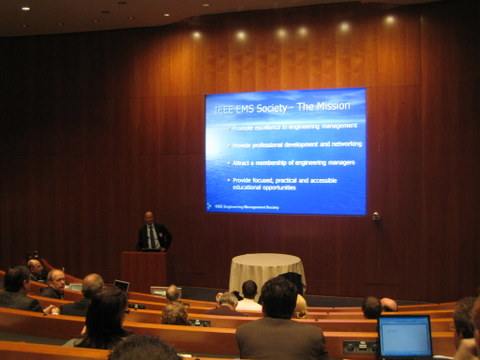Luis included me in a list of worthwhile KM blogs, and asks for more.
This is hard as my list resembles Luis’ quite a bit. But here are some more, in no particular order, and playing almost by his rules:
I want to make it very clear though that this is not my complete essential list of KM reads. To me, that would be the entire 200 KM blogs I am subscribed to right now and that I follow on a regular basis. What this list is, actually, is a whole bunch of folks who have grabbed my interest the most just recently and I will be adding a single line per blog detailing what may be of interest to you, so that you would have the opportunity to check them out further, if you wish to.
What does almost mean? I may point out some of the recent entries of the particular blog, that I’ve boomarked recently – using my shared del.icio.us bookmarks which give a neat summmary if and why a peculiar blog is worthwhile:
So here I go:
GridLock – Just another KM Blog, by Arjun Thomas
I bookmarked some 15 entries by Arjun over the course of time, stuff like
What prompts the need to capture Best Practices?
Knowledge Culture (“The bottom line is, do not hoard information. Get as much of it out to your people as possible. They just might surprise you.”)
Capturing and Transferring Knowledge (“unless an organization’s culture is geared towards sharing knowledge, creating systems and processes to enable the sharing of knowledge is a moot point”)
Why KM? (“With attrition levels high, initiatives, ideas and direction are lost. The other driving force for building KM – where is the time to train new joinees?”)
Arjun is clear, knowledgeable and outspoken, like e.g. here (Why E-mails make bad Idea Management Solutions) or here (MS Wiki Vs Wiki):
What Microsoft seem to have done is create a web based front end for microsoft word, and slipped in a interlinking system and called it a wiki. Even with the versioning system this is probably the simplest and least effective wiki i have come across
Then there is Incredibly Dull by Andrew Gent, a quite new blog with only a few posts for the start. But they are fine and thought-provoking, like e.g. Three Types of Knowledge Workers or The Threat of Social Software (for corporate intranets) (part2, part 1).
Third, and last for today is Knowledge Forward by Craig Roth of the Burton Group. This is a pretty new blog but looks promising, at least for people who are into technologies for KM. From Craig’s mission statement aka about:
[…] My goal is to provide information and ideas that help organizations get their knowledge-based Information Technology initiatives moving forward. […]
I have found it fascinating to see how industry consensus emerges around new technologies and concepts and to follow their acceptance from geeks (“Isn’t this a great new technology?”) to VCs (“Wow! Look how much money we can make!”) to end users (“What can this really do for me today?”). I continue researching new areas with a healthy dose of skepticism, applying the lessons I’ve learned so far to each.
So many good blogs, so little time. And now on to Luis’ next challenge, see next post (in BMID).
